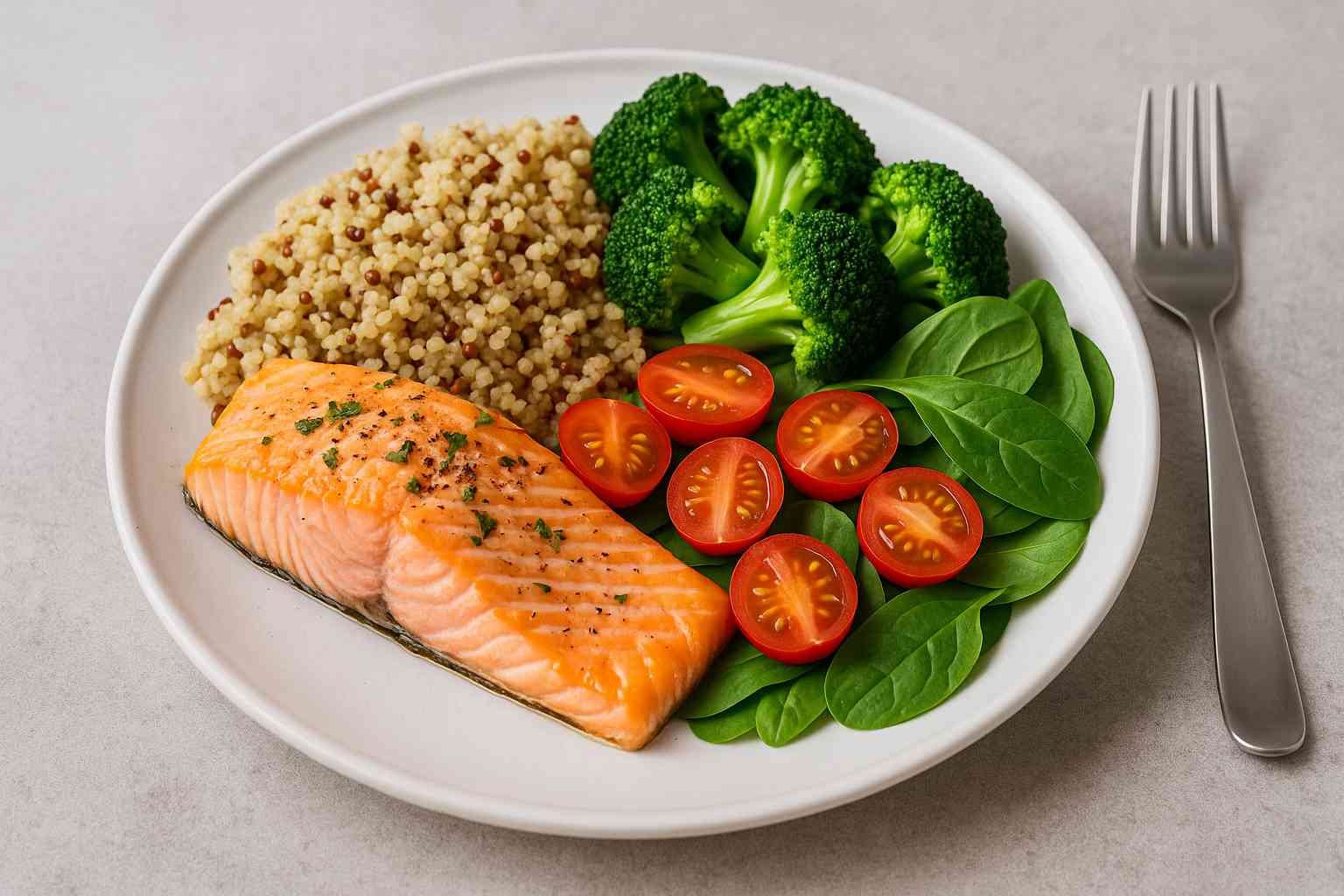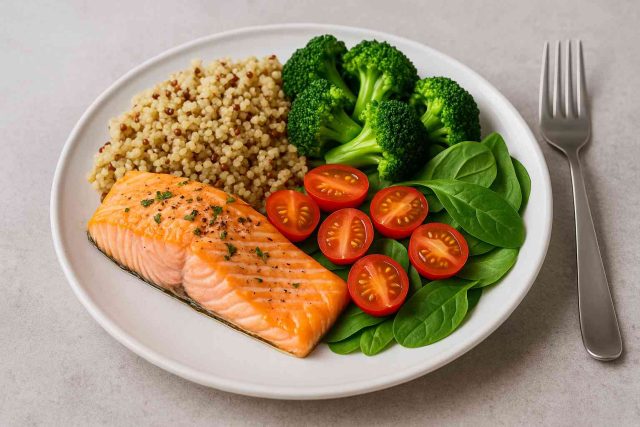
Living with ulcerative colitis can feel like navigating a minefield of food triggers and flare-ups. But what if there was a strategic approach to eating that could reduce symptoms and improve quality of life? An effective ulcerative colitis diet isn’t about rigid restrictions; it’s about creating a balanced, personalized plan that supports gut health while minimizing inflammation.
Table of Contents
- Understanding Ulcerative Colitis and Diet
- Best Foods to Include in an Ulcerative Colitis Diet
- Foods to Limit or Avoid
- Creating a Sustainable Meal Plan
- Conclusion
- FAQs
Understanding Ulcerative Colitis and Diet
Ulcerative colitis (UC) is a chronic inflammatory bowel disease that causes inflammation and ulcers in the lining of the colon and rectum. The connection between diet and UC isn’t always straightforward, but many patients report that certain foods can either ease or worsen their symptoms. That’s why a tailored ulcerative colitis diet is essential.
Although no single diet works for everyone, patterns have emerged in how specific foods impact flare-ups. For example, high-fiber and spicy foods may irritate the colon during an active flare. On the other hand, easily digestible, nutrient-rich foods can support healing and reduce discomfort. By understanding how your body reacts to various foods, you can make informed choices that promote remission.
Medical experts agree that while diet alone doesn’t cause UC, it can play a pivotal role in managing symptoms. Current guidelines suggest that during remission, patients can expand their diets cautiously to include more fiber and probiotics. During active flares, the goal shifts to calming inflammation through a low-residue or bland diet.
Best Foods to Include in an Ulcerative Colitis Diet
Choosing the right foods can make a world of difference. Incorporating easy-to-digest, anti-inflammatory options can help maintain energy levels and prevent nutritional deficiencies, which are common among UC patients.
Lean proteins such as chicken, turkey, eggs, and tofu are generally well-tolerated. Cooked vegetables like carrots, squash, and zucchini offer essential nutrients without straining the digestive system. White rice, oatmeal, and sourdough bread are carb sources that tend to be gentler than whole grains.
Probiotic-rich foods like kefir and lactose-free yogurt may promote a healthy gut microbiome. Additionally, omega-3 fatty acids from sources like salmon and flaxseed have been linked to reduced intestinal inflammation. Just be sure to consult with a healthcare provider before making drastic dietary changes. You can always explore support resources like Healthcare.pro for guidance.
Hydration is also critical. Electrolyte-rich fluids such as coconut water and oral rehydration solutions can help replace minerals lost during flare-ups. Avoid sugary sports drinks, which can irritate the gut.
Foods to Limit or Avoid
Certain foods are more likely to aggravate symptoms and trigger flare-ups in people with ulcerative colitis. High-fat, high-fiber, and heavily processed items top the list of offenders.
During flare-ups, it’s best to limit insoluble fiber sources like raw vegetables, popcorn, nuts, and seeds. These can irritate the colon lining and worsen diarrhea. Dairy products may also cause issues for those who are lactose intolerant, a common condition among UC patients.
Caffeinated drinks, alcohol, and carbonated beverages can increase bowel activity, leading to more frequent trips to the bathroom. Spicy foods, artificial sweeteners, and sugar-laden snacks may also exacerbate symptoms.
Many patients also report sensitivity to gluten, although this varies individually. It’s worth trying a short-term elimination under medical supervision to see if symptoms improve.
Processed foods with additives, emulsifiers, and preservatives should be avoided, as they can disrupt the gut lining and microbiome. Instead, focus on whole foods prepared simply at home.
Creating a Sustainable Meal Plan
Adopting an ulcerative colitis diet means more than just cutting out trigger foods. It involves building a flexible, nourishing routine that supports your health through both flare-ups and remission.
Start with a food diary to track what you eat and how your body responds. This can help you identify patterns and personalize your diet. During flares, stick to bland, soft foods like mashed potatoes, white rice, and poached chicken. As symptoms subside, gradually reintroduce cooked vegetables, fruits without skins, and low-fat dairy.
Meal prepping can reduce stress and ensure consistent nutrition. Aim for small, frequent meals rather than large portions, which can overwhelm the digestive system. Smoothies made with lactose-free yogurt, banana, and cooked spinach can be a nutritious, gut-friendly option.
Work with a registered dietitian who understands inflammatory bowel diseases. They can help ensure you’re meeting your nutritional needs, especially for vitamins D, B12, iron, and calcium. For more health-related tips and insights, visit Health.HealingWell.com.
Digital tools can also enhance your experience. If you run a health-focused website or clinic, explore platforms like eHealthcare Solutions to improve your digital outreach and patient education efforts.
Conclusion
Managing ulcerative colitis through diet requires patience, experimentation, and support. While no single ulcerative colitis diet fits all, a personalized approach can significantly improve your comfort and well-being. By focusing on whole, nourishing foods and avoiding common triggers, you can reduce flare-ups and enhance your quality of life.
FAQs
What is the best diet for someone with ulcerative colitis?
There is no universal best diet, but many find relief with low-residue, anti-inflammatory, and gut-friendly foods. Personalization is key.
Can probiotics help with ulcerative colitis?
Yes, some probiotics may support gut health and reduce symptoms, but their effectiveness varies. Consult your doctor before starting supplements.
Are there any foods that completely cure ulcerative colitis?
No specific food cures UC, but certain dietary choices can help manage symptoms and promote remission.
Is it safe to eat fiber with ulcerative colitis?
During remission, some soluble fiber may be beneficial. However, insoluble fiber should be limited during flare-ups.
Should I try a gluten-free diet?
Some patients report improvement with gluten-free diets, especially if they have sensitivities. Always consult a healthcare professional before making changes.
“This content is not medical advice. For any health issues, always consult a healthcare professional. In an emergency, call 911 or your local emergency services.”




